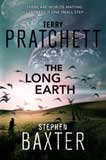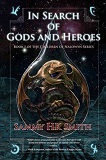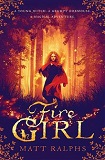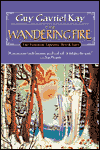
The Long Earth, by Terry Pratchett, Stephen Baxter
Book Review by SJ Higbee
It was something of a shock to discover that this book had somehow slipped past me unread when it first hit the shelves. And obviously an omission I needed to put right as soon as I could...
1916: the Western Front. Private Percy Lakeney wakes up. He is lying on fresh spring grass. He can hear birdsong, and the wing in the leaves in the trees. Where have the mud, blood and blasted landscape of No Man's Land gone?
2015: Madison, Wisconsin. Cop Monica Janesson is exploring the burned-out home of a reclusive -- some say mad, others dangerous -- scientist when she finds a curious gadget: a box containing some wiring, a three-way switch and a ... potato. It is the prototype of an invention that will change the way Mankind views its world for ever.
I'm not sure exactly what I was expecting -- but it wasn't this. The whole feel of this book harks back to the earliest science fiction I read -- the likes of Twenty Thousand Leagues Under the Sea by Jules Verne and H.G. Wells' The Time Machine came to mind in the enthusiastic, detailed description of the expedition across the Long Earth to discover exactly what is out there. In addition, the wide-ranging narrative arc and wide variety of characters has a really old-fashioned feel. The main premise is that there are an endless number of pristine Earths unblemished by humanity just waiting to be stepped into using a small widget powered by a potato, which the inventor ensures is accessible to everyone. The idea of alternate Earths isn't new, but Pratchett and Baxter ensure there are few interesting touches in their joint incarnation -- for starters, stepping across from one Earth to the next induces acute nausea in most people. Though of course, there are exceptions...
The main protagonists are Joshua Valienté, a natural Stepper who doesn't need a machine or suffer any physical discomfort when travelling from Datum -- the name given to our humanity-infested version -- to other Earths; and Lobsang, an obnoxiously smug character who was originally a Tibetan monk, but whose intelligence and identity has been uploaded into a series of artificial environments. Neither of these characters are particularly endearing -- I found myself far more interested in Sally, another natural Stepper they encounter a long way from Datum. But then I didn't much like Captain Nemo or any of the characters travelling on the Nautilus, either. And their story didn't much stick in my memory, so much as the wonder of actually travelling under the sea and their adventures in such a hostile environment. And in this tale, it is definitely the variety of Earths and their impact on humanity and various societies that is the heart of this story.
By the end, I wasn't so much concerned about the main protagonists, as to how the whole story with the Something Nasty Out There will be resolved in the next book, The Long War, which I will definitely tracking down. A nod to the classics -- which initially snared so many fans into seeking more stories in settings beyond the everyday and mundane -- is no bad thing in the hands of two such experienced story-spinnersS J Higbee!
|
Click here to buy The Long Earth, by Terry Pratchett, Stephen Baxter on Amazon
|
The Long Earth, by Terry Pratchett, Stephen Baxter on Amazon

| More Books You Might Like |
| Comments on The Long Earth, by Terry Pratchett, Stephen Baxter |
| There are no comments on this book. |




